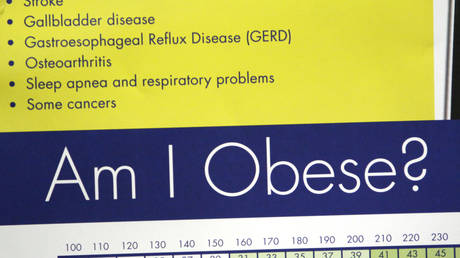
Researchers think they may have stumbled upon a “game changer” drug which can achieve weight loss effects in obese people that were hitherto only possible through surgical intervention.
The experimental treatment involves intravenously administering a weekly dose of a drug called semaglutide, typically used to treat Type 2 diabetes.
In a newly-published study, roughly 2,000 obese adults from 16 different countries were split into two groups, half of whom received the drug, half acting as a control group which was given a placebo.
Both groups were given a lifestyle intervention course aimed at promoting healthier habits and fostering weight loss even without any medicinal intervention. At the end of the 68-week trial, the placebo group had lost a small amount of weight but not enough to be deemed clinically significant.
The semaglutide group, however, was a different story altogether: after 68 weeks of treatment, participants lost on average 14.9 percent of their body weight with some losing over 20 percent –in a truly remarkable achievement.
Early indications, based on this study alone, are that the appetite suppressant drug is twice as effective as current generation weight loss medications on the market and approaches the efficacy of surgical intervention without being remotely as invasive.
“No other drug has come close to producing this level of weight loss – this really is a game-changer,” says obesity researcher Rachel Batterham from University College London.
“For the first time, people can achieve through drugs what was only possible through weight-loss surgery.”
The semaglutide group self-reported quality of life improvements, while displaying reduced cardiological risk factors overall.
However, in both groups, side effects including nausea and diarrhea were reported and were severe enough that they forced nearly 60 participants in the semaglutide group to end the treatment, compared with five in the control group.
Furthermore, there are concerns about the development of long-term dependency, as there are, as yet, no data from the aftermath, once treatment had ended.
“While drugs like this may prove useful in the short term for obtaining rapid weight loss in severe obesity, they are not a magic bullet for preventing or treating less severe degrees of obesity,” cautions nutritionist Tom Sanders, at King’s College London.
At least one participant interviewed after the trial indicated that their weight had begun to creep back up in the absence of the appetite-suppressing drug.
The US Food and Drug Administration, as well as its counterparts across the pond in Britain and Europe, are assessing the clinical data with a view to considering an application to market the drug as a treatment for obesity.
Think your friends would be interested? Share this story!




